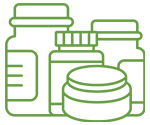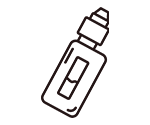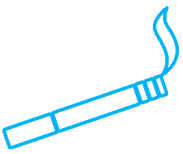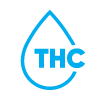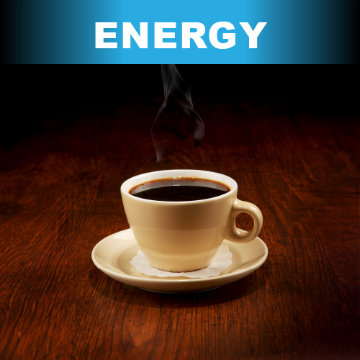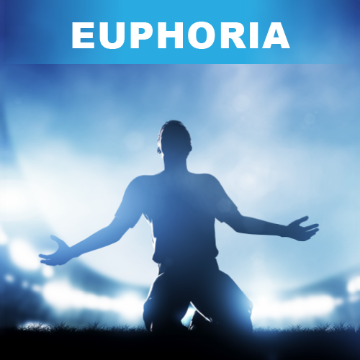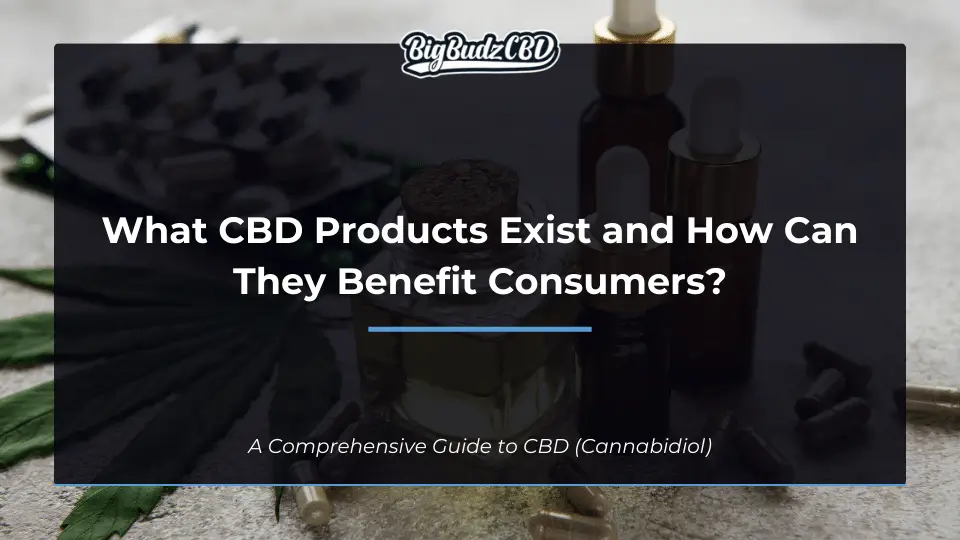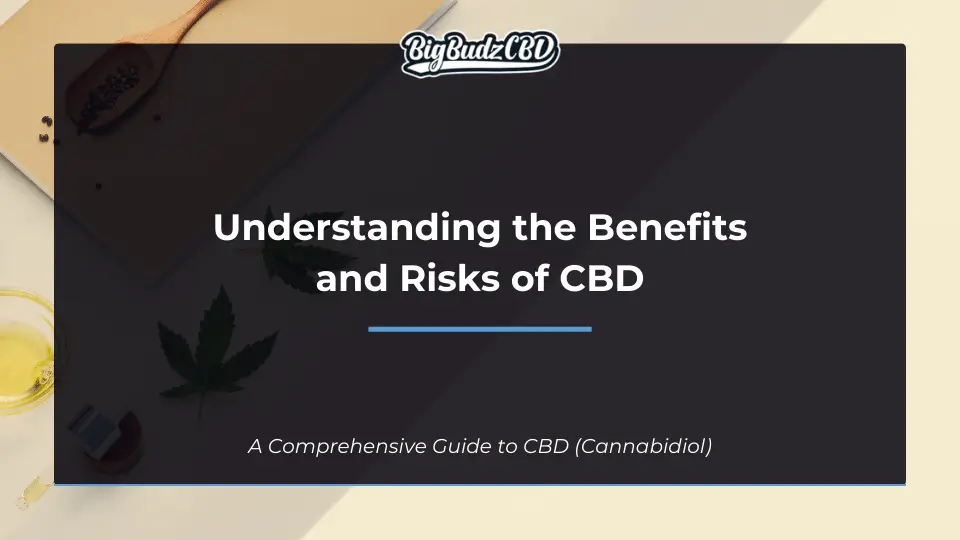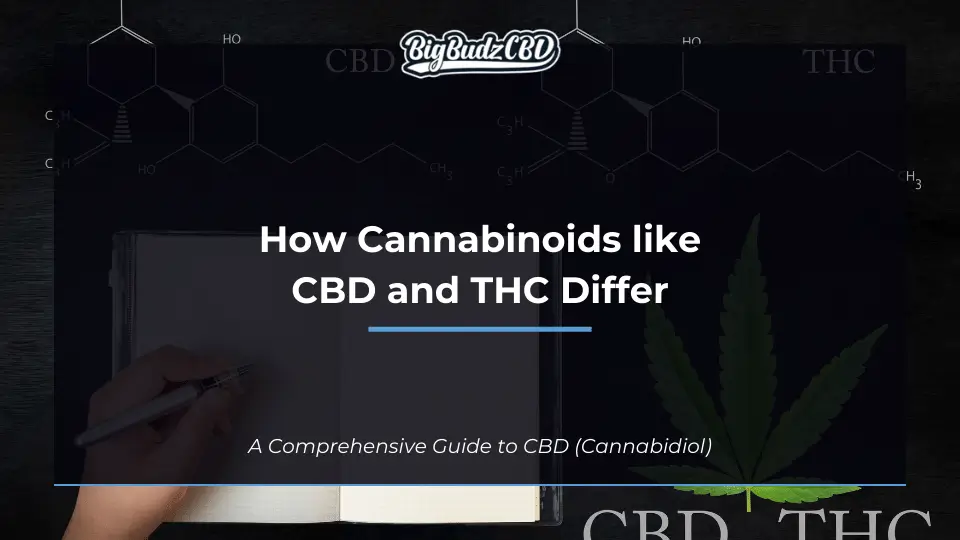CBD 101: The Ultimate Guide to All Things Cannabidiol, CBD Oil and Cannabinoids
Table of Contents
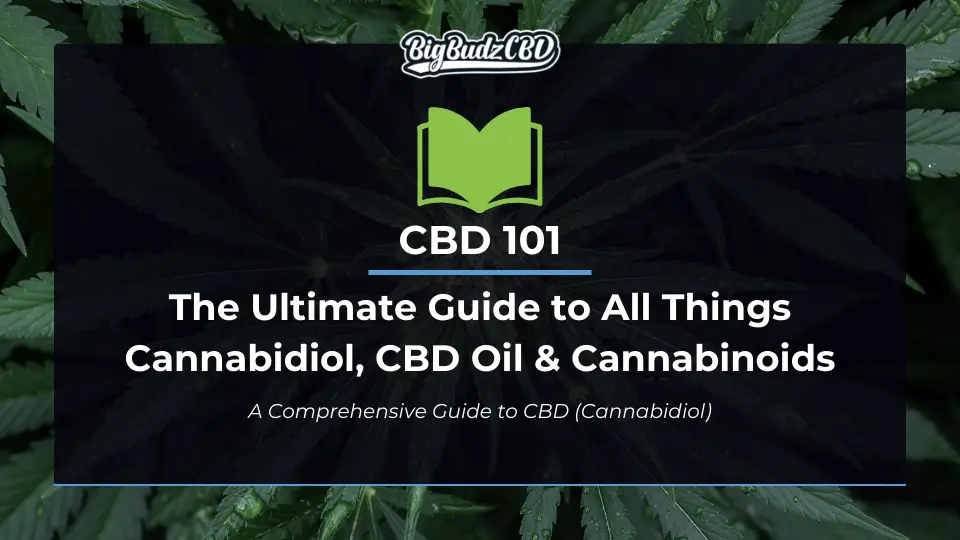
If you’re looking to understand what CBD is, how it’s used, or how it compares to other cannabinoids, this CBD guide covers the essentials without the confusion.
We created this resource to provide clear, reliable answers about CBD, the second most widely known cannabinoid after THC, and to help you make informed decisions whether you’re using CBD personally or professionally.
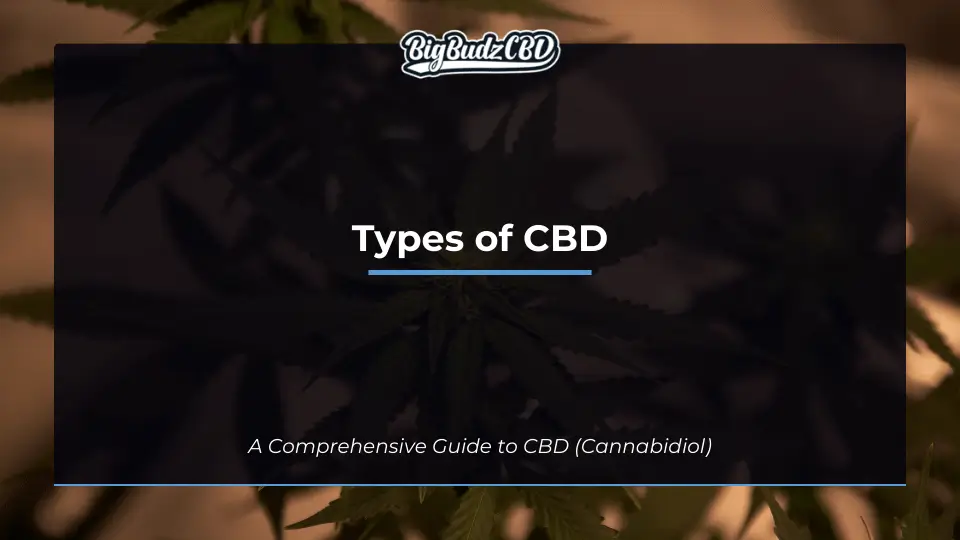
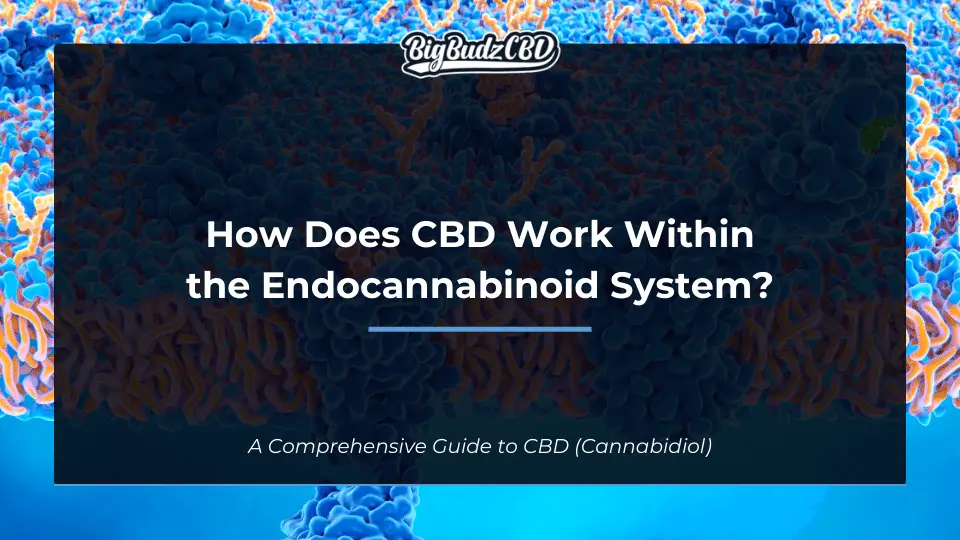
What is CBD (Cannabidiol)?
CBD is a chemical found in the marijuana plant as well as in hemp, both varieties of the cannabis sativa plant. Unlike the more well-known cannabinoid THC (tetrahydrocannabinol), CBD is not psychoactive and does not produce a “high” feeling. It has been studied for its potential therapeutic benefits, including its ability to reduce pain, inflammation, anxiety, and seizures. CBD is commonly used in various forms, such as oils, topicals, capsules, and edibles, and has gained popularity as a natural remedy for a wide range of conditions. To expand a little more on “what is CBD…” it is a naturally occurring compound that comes from the cannabis plant and is mainly found in the resinous flower of cannabis (or hemp), a plant with a rich history as a medicine dating back thousands of years. Today, the therapeutic properties of CBD are being tested and confirmed by scientists and doctors around the world. A safe, non-addictive substance, CBD is one of more than a hundred “phytocannabinoids,” which are unique to cannabis and endow the plant with its robust therapeutic properties.The Chemical Nature of CBD
At a molecular level, CBD is one of the most prevalent chemical compounds (cannabinoids) in the cannabis plant. It’s a close chemical cousin to tetrahydrocannabinol (THC), the substance in cannabis that’s famous for causing a high, but unlike THC, CBD is not psychoactive. This non-intoxicating characteristic makes CBD an appealing option for those looking for relief from various symptoms without the mind-altering effects of cannabis or certain pharmaceutical drugs.Interaction with the Human Body
CBD and other cannabinoids interact with the human body through the endocannabinoid system (ECS). The ECS is a complex cell-signaling system identified in the early 1990s by researchers exploring THC. It’s involved in regulating a range of functions and processes, including sleep, mood, appetite, memory, reproduction, and fertility. The body produces endocannabinoids, which are neurotransmitters that bind to cannabinoid receptors in your nervous system. CBD influences the body to use its endocannabinoids more effectively. It may activate or inhibit other compounds in the ECS. For example, CBD stops the body from absorbing anandamide, a compound associated with regulating pain. Increased levels of anandamide in the bloodstream may reduce the amount of pain a person feels. So cannabinoids are designed to directly interact with all mammals, as we have an internal cannabinoid system (the ECS).
Types of CBD
CBD Isolate:
CBD isolate is the purest form of CBD, containing no other cannabinoids, terpenes, or flavonoids. It’s usually extracted from hemp plants and contains no THC. CBD isolate is a good option for those who want to try CBD but cannot or do not want to ingest any tetrahydrocannabinol (THC), which is still found in very small amounts in most broad-spectrum and full-spectrum products. Most other CBD products contain at least an extremely low level of THC.Broad-Spectrum CBD:
This type of CBD contains most cannabinoids, but it generally doesn’t include high levels of THC. Broad-spectrum CBD is a good choice if you want to benefit from the wide array of cannabinoids but prefer to avoid THC due to its psychoactive effects or any other reason. So if you’re not concerned about needing to take a drug-test for fear of it coming up positive, then broad-spectrum CBD is a great option.Full-Spectrum CBD:
Full-spectrum CBD products contain all the compounds naturally found in the cannabis plant, including THC. However, the THC content is supposed to be less than 0.3% in hemp-derived products, which isn’t enough to create a high. Full-spectrum products provide the complete benefits of the cannabis plant, often referred to as the entourage effect. This concept suggests that CBD and THC work better when taken together, as well as with the other cannabinoids, terpenes, and flavonoids found in cannabis. CBD’s versatility and non-psychoactive nature have driven its popularity as a remedy for various conditions. If you’re thinking about giving CBD a go for your health, to help with certain issues, or just because you’re curious, the first thing you should do is learn about where it comes from, the different kinds, and exactly how much CBD works with your body and personal chemistry.just because you’re curious, the first thing you should do is learn about where it comes from, the different kinds, and how it works with your body and personal chemistry. It’ll help you make a smart choice about whether to give it a try and choose from the variety of forms CBD comes in. It’ll help you make a smart choice about whether to give it a try and choose from the variety of forms CBD comes in. Always consult with a healthcare professional before starting any new supplement, especially if you have existing health conditions or are taking other medications.What CBD Products Exist and How Can They Benefit Consumers?
The world of CBD is also vast and varied, with a multitude of products designed to suit different needs and preferences. From oils to edibles, each type offers unique benefits and ways to consume CBD. Here’s an overview of the most common types of CBD products available on the market:CBD Oils
What are CBD Oils?
CBD oil is perhaps the most well-known and widespread form of CBD. It’s made by extracting CBD from the cannabis plant and then diluting it with a carrier oil like coconut or hemp seed oil.Uses and Benefits of Oils:
- CBD oil is known for its versatility.
- It can be taken sublingually (placed under the tongue for a minute before swallowing), added to food or drinks, or applied topically.
- It’s praised for its ease of use and the ability to customize dosage.
- Users turn to CBD oil for a range of potential benefits, from relieving anxiety and pain to improving sleep and reducing inflammation.
CBD Tinctures
What are CBD Tinctures?
Often confused with CBD oil, tinctures are also liquid extracts but are typically made with alcohol as the base. They are usually found in dropper bottles and come in various flavors.Uses and Benefits of Tinctures:
- Like oils, tinctures are taken sublingually and are known for their fast absorption.
- They are a good option for those seeking quick effects and dose control.
- Tinctures are commonly used for stress relief, sleep enhancement, and overall wellness.
CBD Edibles
What are CBD Edibles?
Edibles are food items infused with CBD. They come in many forms, including gummies, chocolates, cookies, and beverages.Uses and Benefits of Edibles:
- They’re popular for their ease of use, discreet nature, and controlled dosage.
- They provide a longer-lasting effect as the CBD is released slowly during digestion.
- People often use edibles for sustained relief from symptoms like anxiety and chronic pain.
CBD Topicals
What is topical CBD?
These are creams, lotions, balms, and salves infused with CBD that are applied directly to the skin.What are the Uses and Benefits of Topicals:
- Topicals are ideal for targeting specific areas of the body.
- They are commonly used for localized pain relief, muscle soreness, and skin conditions or issues like rashes scratches, or bruising.
- Since they are applied externally, they don’t enter the bloodstream, making them a good choice for those solely interested in localized effects.
CBD Capsules
What are CBD Capsules?
CBD capsules are a convenient way to take CBD in pill form. They contain a precise amount of CBD extract and typically have no taste. They are often made with cellulose capsules or soft gels.Uses and Benefits of CBD Capsules:
- Capsules are favored for their convenience and consistency.
- They provide a simple way to incorporate CBD into a daily routine, similar to taking a multivitamin.
- Users opt for capsules to support overall health, manage stress, and maintain consistent sleep patterns.
CBD Vape Pens
What are CBD Vape Pens?
Vape pens are devices that heat a CBD-containing liquid to produce a vapor that’s inhaled.What are the Uses and Benefits of CBD Vape Pens?
Vaping CBD offers the fastest absorption rate, meaning effects are felt almost immediately. It’s a preferred method for those seeking quick relief from acute symptoms like sudden stress, anxiety attacks, or pain flare-ups.Best CBD for Beginners
The best CBD for beginners tends to be products that offer consistent dosing, minimal psychoactive risk, and straightforward use. CBD isolate and broad-spectrum CBD are often preferred starting points. CBD isolate contains only cannabidiol, with no THC, making it a good option for those who want to avoid intoxication or drug test concerns. Broad-spectrum CBD includes additional cannabinoids and terpenes but typically has THC removed, offering a more complete profile without the high. Oils, capsules, and gummies are also common beginner-friendly formats because users can dose easier and more precisely. Starting with lower concentrations and increasing slowly helps new users understand how CBD affects their body without overwhelming effects.What Are the Benefits of CBD?
Cannabidiol (CBD) has gained widespread attention for its potential to treat a variety of health conditions. While research is ongoing and constantly evolving, some studies have suggested promising results. However, it’s crucial to balance these potential benefits with an understanding of the possible risks and side effects.Potential Health Benefits of CBD
- Anxiety and Depression: Numerous studies suggest that the use of pure CBD may help alleviate anxiety and depression. It’s thought to interact with the brain’s serotonin receptors, which regulate mood and social behavior. People have reported feeling less anxiety under CBD’s influence, and some clinical trials have supported its potential as a treatment for multiple anxiety disorders.
- Pain and Inflammation: CBD may offer an alternative for treating different types of chronic pain. It has been shown to reduce inflammation and pain in some studies, including those focused on arthritis and multiple sclerosis. This is believed to be due to CBD’s interaction with neurotransmitters and its anti-inflammatory effects.
- Neuroprotective Properties: Researchers believe that CBD’s ability to act on the endocannabinoid system and other brain-signaling systems may provide benefits for those with neurological disorders. Notably, it has been studied for its potential effectiveness in treating epilepsy and multiple sclerosis, with some positive findings.
- Heart Health: Some research has linked CBD with several benefits for the heart and circulatory system, including the ability to lower high blood pressure, which is linked to higher risks of several health conditions, including stroke, heart attack, and metabolic syndrome.
- Sleep Disorders: CBD has been used by some individuals to address issues with sleep, suggesting it might help with both falling asleep and staying asleep.
- Other Potential Benefits: CBD has been studied for its role in treating several other health issues, including antipsychotic effects on individuals with schizophrenia, substance abuse treatment, anti-tumor effects, and diabetes prevention.
Possible Risks and Side Effects of CBD
While CBD is generally considered safe, it can cause adverse reactions in some people. So is there a reason to avoid CBD? CBD is generally well tolerated. It’s likely not so much the actual cannabinoid CBD that has negative side effects, but the other compounds or ingredients you might find due to the extraction process or other ingredients in a formula.The side effects noted in some studies of CBD include:
- Diarrhea
- Changes in Appetite and Weight
- Fatigue
- Dizziness
- Dry Mouth
- CBD, especially the purity of the CBD being taken into account, is also known to interact with several medications. If you’re taking any prescription medication, it’s important to consult with a healthcare professional before starting to use CBD.
Important Considerations when Dosing CBD
- Quality and Purity: The market is unregulated in many areas, leading to inconsistencies in product quality and CBD content. This lack of standardization can contribute to varying results and potential risks.
- Research Limitations: Many studies and clinical trials have been relatively small or conducted primarily on animals. More extensive human studies are needed to substantiate the claims and understand the long-term effects and potential benefits of CBD.
- Regulatory Status: The legal status and oversight of CBD products vary by region, affecting the research, production, and quality control of CBD products.
CBD Dosage Guide
Determining the right dosage of CBD can be a personal journey, as it varies greatly depending on individual factors and the reason for usage. Here’s a guide to help you navigate the process of determining the right CBD dosage for your needs:
Understand Dosage Variables
CBD for Body Weight:
Just like with many other substances, your body weight can influence how CBD affects you. Generally, heavier individuals may require a higher dose to experience the same effects as someone lighter.Condition Being Treated:
The optimal dosage can vary significantly based on what you’re using CBD for. For instance, someone using CBD for chronic pain might need a higher dose than someone using it for mild anxiety or as a dietary supplement.Product Potency:
The concentration of CBD in the product you’re using will greatly affect how much you should take. Products vary widely in their potency, so always check the amount of CBD per serving on the label.Starting Low and Going Slow
Initial Dosage:
It’s widely recommended to start with a small dose of CBD, especially if you’re new to it. This might mean starting with 10 to 30 mg a day and gradually increasing by 5 mg after a week.Monitor and Adjust:
Pay attention to how your body reacts. If you don’t feel the desired effects after a week, increase your dose by a small amount. Continue this process until you find the dose that gives you the desired effect.Calculating Your Dosage
Standard Dosing:
Many sources suggest that a baseline dosage is important, considering levels of CBD found in hemp, and they recommend a dosage of 1 to 6 mg of CBD for every 10 pounds of body weight.Dosage Calculators:
Some online resources and manufacturers offer dosage calculators based on your weight and the condition being treated. Consultation with Health Professionals: If possible, consult with a doctor experienced in cannabis use. They can provide personalized dosage recommendations based on your medical history and the specifics of what you’re treating.Factors Affecting Dosage
Method of Delivery:
The way you consume CBD (e.g., oils, capsules, edibles, or vaping) affects its bioavailability and how quickly it starts working. Inhalation provides a quicker onset but shorter duration, while edibles take longer to kick in but last longer.Personal Chemistry:
Individual differences in metabolism, genetics, and ECS sensitivity can affect how you respond to CBD.Consistency:
Regular use can influence how your body responds to CBD over time. Some people might find they need to adjust their dosage after prolonged use.Recommended CBD Dosage Table (Consult a Doctor before Choosing your Dosage)
It’s important to note that the ideal dosage of CBD can vary widely depending on several factors like body weight, the condition being treated, the individual’s body chemistry, and the concentration of CBD in the product. However, here’s a basic framework to start with:| Body Weight | Mild Effects | Moderate Effects | Strong Effects |
| < 130 lbs | 10-15 mg | 15-20 mg | 20-25 mg |
| 130-230 lbs | 15-20 mg | 20-30 mg | 30-40 mg |
| > 230 lbs | 20-25 mg | 30-40 mg | 40-50 mg |
- Mild Effects: Typically for minor pain, mood enhancement, mild anxiety, and general health.
- Moderate Effects: For moderate pain, moderate anxiety, sleep disorders, and inflammation.
- Strong Effects: For severe pain, severe anxiety, severe insomnia, and other more acute conditions.
How Does CBD Work Within the Endocannabinoid System?
CBD works by interacting with the body’s endocannabinoid system (ECS), a regulatory system that helps maintain balance across functions like sleep, mood, pain response, inflammation, and stress. The ECS is made up of three basic parts:- Endocannabinoids, which your body produces naturally
- Receptors, which receive those signals
- Enzymes, which break things down once their job is done
A Closer Look at Cannabinoids and Endocannabinoids
Cannabinoids fall into two main categories: phytocannabinoids, which come from plants like hemp and cannabis, and endocannabinoids, which are produced naturally by the body. The most well-known phytocannabinoids are CBD and THC. Endocannabinoids, such as anandamide (AEA) and 2-arachidonoylglycerol (2-AG), are produced on demand and help regulate functions like mood, pain response, appetite, and inflammation across multiple body systems. These compounds exert their effects by interacting with cannabinoid receptors. CB1 receptors are found primarily in the brain and central nervous system, while CB2 receptors are more common in immune cells and peripheral tissues. THC binds directly to CB1 receptors, which is why it causes intoxication. CBD does not bind strongly to CB1 or CB2 receptors. Instead, it influences the system indirectly. One important mechanism involves enzymes such as FAAH, which break down endocannabinoids after they’ve done their job. CBD inhibits FAAH, potentially allowing endocannabinoids like anandamide to remain active for longer. CBD also interacts with receptors outside the endocannabinoid system, including those involved in serotonin signaling and pain perception. This indirect, multi-pathway interaction helps explain why CBD can affect multiple systems without producing the psychoactive effects associated with THC.How Cannabinoids like CBD and THC Differ
CBD (cannabidiol) and THC (tetrahydrocannabinol) are both cannabinoids found naturally in the cannabis plant, but they affect the body in very different ways.THC
THC is psychoactive. It binds directly to CB1 receptors in the brain and central nervous system, which produces the intoxicating “high” associated with marijuana. This interaction can alter perception, coordination, reaction time, and short-term memory. THC is also responsible for many of cannabis’s medical effects, including appetite stimulation and certain types of pain relief, but it can also trigger anxiety or paranoia in some people.CBD
CBD works differently. It does not bind strongly to CB1 or CB2 receptors and does not cause intoxication. Instead, it influences how the endocannabinoid system functions by supporting the body’s own endocannabinoids and interacting with other receptor systems involved in mood, inflammation, and pain signaling. This is why CBD is often described as non-intoxicating rather than inactive. Because of these differences, CBD and THC can produce very different experiences even when taken from the same plant. Products high in THC tend to be used for recreational or specific medical purposes where intoxication is acceptable. CBD-dominant products are typically used by people who want potential therapeutic benefits without cognitive impairment. It’s also important to understand that CBD and THC can influence each other. CBD may moderate some of THC’s effects, which is why products with balanced cannabinoid profiles can feel different from THC-dominant products. Individual response varies based on body chemistry, dosage, and frequency of use.Difference Between Hemp Oil, CBD Oil, and Hemp-Derived CBD
These terms are often used interchangeably, but they refer to different things.- Hemp oil (hemp seed oil) is made from hemp seeds. It contains no meaningful CBD or THC and is used mainly for nutrition and skincare.
- CBD oil is made by extracting cannabidiol from the flowers, leaves, and stalks of the plant and blending it with a carrier oil. Depending on how it’s processed, it may contain other cannabinoids and terpenes.
- Hemp-derived CBD simply means the CBD was extracted from hemp plants containing less than 0.3% THC, which is what makes it federally legal in the U.S.
The Legal Landscape of CBD
The legal status of CBD is complex and varies significantly around the world and even within regions of the same country. This overview provides a general understanding of the legal considerations surrounding CBD globally, regionally, and the nuances of traveling with CBD, age restrictions, and purchasing guidelines.Global CBD Legal Status
Worldwide Overview:
Internationally, the CBD legal status varies dramatically. Some countries have fully legalized CBD for medical and recreational use, while others have strict regulations or outright bans. The key factor often lies in the distinction between marijuana-derived CBD and hemp-derived CBD, with the latter typically facing less strict regulations due to its low THC content.United States:
In the U.S., the 2018 Farm Bill legalized hemp-derived CBD at the federal level, provided it contains less than 0.3% THC. However, state laws vary greatly. Some states have embraced CBD fully, while others have specific restrictions or have not legalized it at all.European Union:
Most EU countries allow the sale and consumption of CBD products derived from hemp with THC content below 0.2%. However, individual countries may have their own regulations, so it’s crucial to check the specifics for each nation.Canada:
Canada legalized cannabis, including CBD, in 2018. However, the market is highly regulated, and products must be purchased through authorized retailers.Asia, Africa, and the Middle East:
These regions have some of the strictest cannabis laws in the world. Many countries do not differentiate between hemp and marijuana, making CBD illegal or heavily regulated.Traveling with CBD
Navigating Borders:
When traveling with CBD, it’s crucial to research the laws of both the departure and destination countries. Even in places where CBD is legal, carrying it across borders can be problematic. For air travel, particularly international flights, the safest approach is to check the regulations of the airline and the specific countries involved.Age Restrictions
Legal age requirements for purchasing and consuming CBD products typically align with local laws for tobacco or alcohol. Most places that regulate CBD sales impose an age limit of 18 or 21.Common Misconceptions about CBD
There are several misconceptions surrounding CBD and THC due to their association with cannabis, legal status, and how they affect the body. Here are some common ones:1. All Cannabis Products Get You High:
- Misconception: Many people believe that using any cannabis-derived product will result in a psychoactive high.
- Reality: While THC is psychoactive and can produce a high, CBD does not. Hemp-derived CBD products (with less than 0.3% THC) are designed to provide potential health benefits without the high.
2. CBD and THC Have No Medical Benefits:
- Misconception: Some people think that CBD and THC are only used recreationally and have no real medical benefits.
- Reality: Both compounds have been studied for their potential therapeutic effects. THC is known for its pain-relieving properties and is used in medical marijuana. CBD has been studied for various potential benefits, including reducing anxiety, pain, and inflammation. The Food and Drug Administration (FDA) has even approved a CBD-based drug called Epidiolex for certain types of seizures.
3. CBD is Completely Legal Everywhere:
- Misconception: There’s a common belief that CBD is legal in all parts of the world because it’s not psychoactive.
- Reality: The legality of CBD varies by jurisdiction. In the United States, for example, CBD derived from hemp with less than 0.3% THC is federally legal, but state laws vary. In other countries, the rules can be much stricter.
4. More THC or CBD is Always Better:
- Misconception: Some believe that higher doses of THC or CBD are always more effective.
- Reality: Both substances have a bell-shaped dose-response curve; they may be effective up to a point, but beyond that, additional amounts might not increase efficacy and could even cause adverse effects. The most effective dose varies from person to person and depends on the condition being treated.
5. CBD Has No Side Effects:
- Misconception: As a natural supplement, many assume CBD has no side effects.
- Reality: While CBD is generally well-tolerated, it can cause side effects in some people, such as dry mouth, diarrhea, reduced appetite, drowsiness, and fatigue. It can also interact with other medications.
6. All CBD Products are the Same:
- Misconception: People often think one CBD product is much like another.
- Reality: There’s a significant variance in the quality, purity, and concentration of CBD products due to differences in manufacturing processes, extraction methods, and the source of the cannabis. It’s essential to purchase from reputable sources that provide third-party testing.
7. THC is Bad, and CBD is Good:
- Misconception: There’s a tendency to demonize THC while glorifying CBD.
- Reality: Both THC and CBD have potential benefits and drawbacks. THC can be beneficial for certain medical conditions but also has psychoactive effects and potential for abuse. CBD is non-psychoactive and has a good safety profile but is not a cure-all and works best for certain conditions.
8. You Can’t Get Addicted to CBD or THC:
- Misconception: Because they’re natural, some believe you can’t develop a dependence on CBD or THC.
- Reality: While CBD has not been shown to have addictive properties and is generally considered non-habit forming, THC can be addictive for some people, leading to cannabis use disorder.


